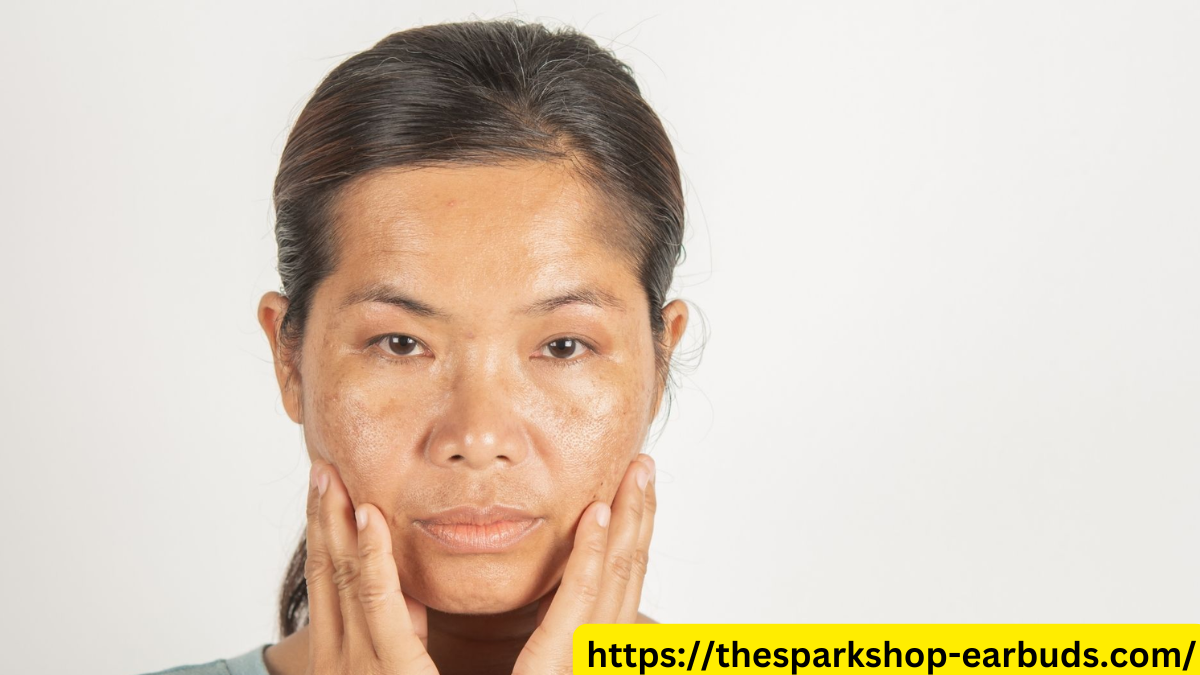Introduction
Dark spots, also known as hyperpigmentation, are one of the most common skin concerns that affect people of all ages. These spots can appear due to a variety of reasons, including sun exposure, acne scars, hormonal changes, and aging. While they are harmless, dark spots can make the complexion look uneven and affect one’s confidence. Fortunately, there are many ways to address dark spots, including natural remedies that are safe and effective. Well Health Organic offers several insights into the best methods to remove dark spots on the face using organic and natural ingredients. In this article, we will explore these methods and discuss how incorporating these approaches into your skincare routine can help achieve clear, radiant skin.
The Causes of Dark Spots
Before diving into the solutions for dark spots, it’s important to understand the causes behind their formation. One of the primary causes of hyperpigmentation is sun exposure. Ultraviolet (UV) rays from the sun trigger the production of melanin, Well health organic best ways to remove dark spots on face the pigment responsible for skin color. When the skin is exposed to the sun for long periods without protection, the body produces excess melanin, leading to the formation of dark spots or sun spots.
Another common cause of dark spots is acne. When the skin undergoes inflammation, such as during an acne breakout, it can leave behind scars. These scars often appear as dark spots or post-inflammatory hyperpigmentation. Hormonal changes, such as those experienced during pregnancy or menopause, can also trigger the appearance of dark spots. This condition, known as melasma, is typically seen on the forehead, cheeks, and upper lip. Aging can also contribute to the formation of dark spots, as the skin’s ability to regenerate slows down with time.
The Role of Natural Remedies in Treating Dark Spots
While there are numerous over-the-counter products available that claim to lighten dark spots, many of them contain harsh chemicals that can irritate sensitive skin. For those seeking a more gentle approach, natural remedies offer a safer, more sustainable option. Well Health Organic emphasizes the use of natural ingredients that are effective yet kind to the skin. These ingredients work by targeting the excess melanin production, exfoliating dead skin cells, and encouraging the regeneration of healthier skin.
One of the primary benefits of using natural remedies for dark spots is their ability to nourish the skin with vitamins, minerals, and antioxidants. Many organic ingredients are rich in vitamin C, a powerful antioxidant known for its skin-brightening properties. Vitamin C helps inhibit the production of melanin, thereby reducing the appearance of dark spots and promoting an even skin tone. Other natural ingredients, such as aloe vera, turmeric, and honey, also have healing and anti-inflammatory properties that can soothe the skin and fade dark spots over time.
The Best Organic Ingredients for Removing Dark Spots
One of the most recommended organic solutions for dark spots is the use of aloe vera. Aloe vera is known for its soothing and hydrating properties, making it a favorite for treating various skin conditions, including dark spots. The gel inside the aloe vera plant contains compounds that help lighten pigmentation, reduce inflammation, and promote the healing of damaged skin. Aloe vera can be applied directly to the affected areas and left on for a period to allow it to penetrate deeply into the skin, working its magic to fade dark spots.
Another highly effective organic remedy is turmeric. Turmeric contains curcumin, a compound known for its anti-inflammatory and antioxidant properties. Curcumin helps lighten pigmentation by inhibiting melanin production and promoting an even skin tone. Turmeric can be used in face masks or applied as a paste to dark spots. However, due to its strong yellow color, it’s essential to ensure that turmeric is washed off thoroughly after use to avoid any staining.
Honey is another fantastic natural remedy for dark spots. It has antibacterial properties that can help treat acne scars and prevent new blemishes from forming. Honey also has humectant properties, meaning it draws moisture into the skin, keeping it hydrated and healthy. Its soothing effects make it an excellent choice for individuals with sensitive skin who are looking to reduce dark spots without irritation.
Lemon juice, rich in vitamin C, is a popular ingredient for brightening the skin and fading dark spots. The acidic nature of lemon juice helps exfoliate dead skin cells and promotes the regeneration of new skin. However, it is essential to use lemon juice with caution, as its acidity can make the skin more sensitive to the sun. Always apply sunscreen after using lemon juice on your skin to prevent further pigmentation.
How to Use Natural Remedies to Remove Dark Spots
To effectively remove dark spots using natural remedies, consistency and patience are key. Incorporating these organic ingredients into your skincare routine regularly will help you achieve gradual results. The process typically involves applying the ingredients to the affected areas and allowing them to work on the skin over time. It’s essential to be mindful of how your skin reacts to these remedies and adjust the frequency of use accordingly.
For example, if you are using aloe vera gel, you can apply it directly to the dark spots and leave it on for about 15 to 20 minutes. Afterward, wash it off with lukewarm water. You can do this once or twice a day for the best results. Similarly, turmeric can be mixed with milk or honey to create a paste that can be applied to the skin for 10 to 15 minutes before rinsing off. Due to its staining nature, be sure to clean the skin thoroughly.
When using lemon juice, dilute it with a bit of water or honey before applying it to the skin to minimize irritation. Leave it on for 10 to 15 minutes and then wash it off. Since lemon juice can increase the skin’s sensitivity to sunlight, it’s essential to apply sunscreen afterward if you’re going out during the day.
Other Lifestyle Changes to Support Skin Health
In addition to using natural remedies for dark spots, Well Health Organic advises incorporating healthy lifestyle practices that can help support overall skin health. Drinking plenty of water is one of the simplest yet most effective ways to keep your skin hydrated and promote its natural healing process. Hydrated skin is more resilient and can better fight off irritants and pigmentation.
A healthy diet rich in vitamins and antioxidants is also essential for maintaining clear skin. Foods that are high in vitamin C, such as citrus fruits, berries, and leafy greens, can help reduce the appearance of dark spots. Additionally, incorporating foods with anti-inflammatory properties, such as turmeric, ginger, and green tea, can further support the skin in its healing process.
Lastly, it’s important to Well health organic best ways to remove dark spots on face protect your skin from sun damage, as UV exposure is one of the leading causes of dark spots. Wearing sunscreen with broad-spectrum protection every day, even on cloudy days, will help prevent further pigmentation and protect your skin from harmful rays. Additionally, wearing a hat or seeking shade during peak sunlight hours can further reduce the risk of developing new dark spots.
Conclusion
Dark spots on the face can be a source of frustration for many individuals, but there are several effective and natural ways to address them. Well Health Organic highlights the importance of using organic ingredients like aloe vera, turmeric, honey, and lemon juice to fade dark spots and achieve clear, radiant skin. These natural remedies work by exfoliating dead skin cells, reducing melanin production, and promoting healthy skin regeneration. However, it’s important to remember that achieving results takes time, and consistency is key. By incorporating these natural ingredients into your skincare routine and supporting your skin with healthy lifestyle choices, you can gradually reduce the appearance of dark spots and enjoy a more even complexion.


